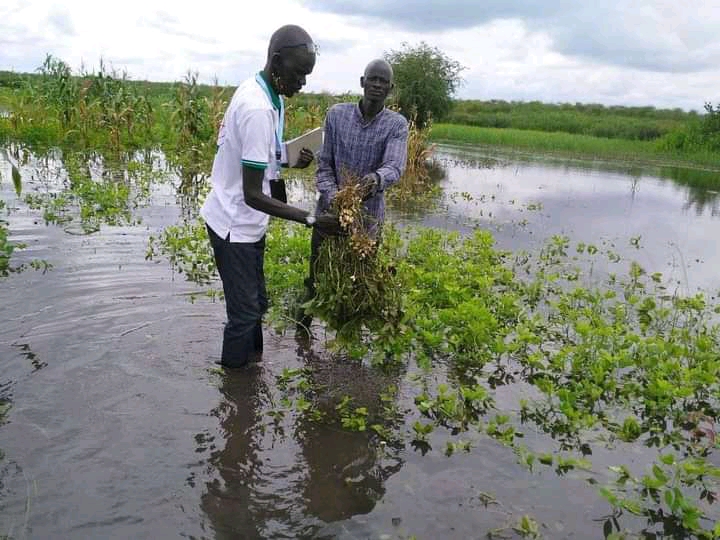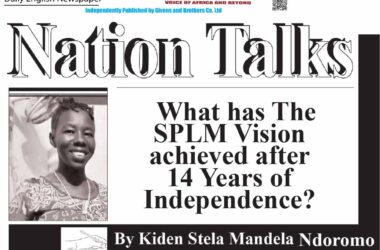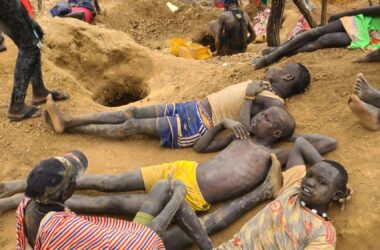
By Chol Makol Riak
Some families in Bor county have said they are struggling to put food on table after last year’s floods destroyed their farms.
Last year almost all nine counties of Jonglei where submerged with water which displaced hundreds of thousands people to the neighbouring states, destroyed many farms, homes, livestock and other valuable properties of the residents.
Kec Magok said last year’s flash floods in Bor had destroyed her farm. Kec, the mother of six girls said she is struggling to feed her family.
“Currently the life of my children is worsening and the little humanitarian that we get from the UN is not enough for us, and how long shall we be relying on the UN to feed us” Kec said.
Kec said she largely depends on food rations provided by the UN World Food Program but the WFP cut those rations 6 months ago. However, Kec said she resorted to cultivating a small vegetable garden along the river to generate a small amount of income to feed her children.
60-year-old Abuol Malual said she is unable to farm because of her age and illness. She said the food ration she receives from the WFP is too small to support her.
“This small food we get from the UN WFP is not enough and as you can see me, I’m unable to cultivate because of my age and I’m also blind. So, I am calling on the government and the UN to provide the vulnerable citizens” Abuol said.
Last year, the United Nations World Food Program announced it would suspend food assistance for more than 100,000 displaced people in parts of South Sudan as part of what it called a prioritization exercise driven by funding shortages.
Last week, the WFP warned more than 70 percent of the South Sudanese population will struggle to survive the height of this year’s lean season as the country copes with unprecedented levels of food insecurity caused by conflict, climate shocks, Covid-19, and rising costs.



